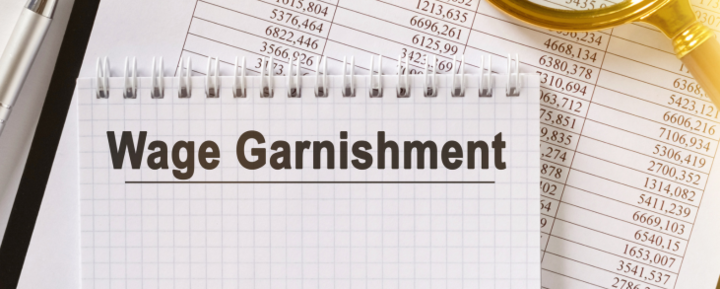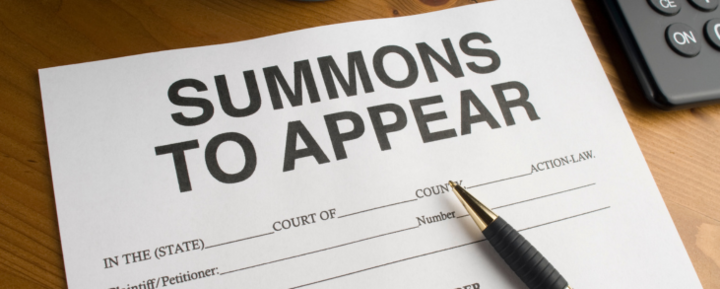Wage garnishment is one of several tools lenders and debt collection agencies have to help them collect unpaid debts. For example, if you stop making payments on your credit card debt, the lender’s first course of action will likely be collections calls and letters. But if you continue to miss your payments, the lender may resort to suing you to have your wages garnished to collect what you owe.
Though lenders can try to have your wages (or even your bank account) garnished, there’s a legal process they must follow. It’s easy to feel blindsided when you see your hard-earned funds being taken from your paycheck, but can it actually be done without your notice? Keep reading to learn the process for wage garnishment and how to protect yourself and your finances.
Can Wages Be Garnished Without Notice?
The short answer is that, no, your wages can’t be garnished without your notice. To have your wages garnished, a creditor has to sue you, and they’re only able to have your wages garnished by going to court and getting a judgment.
If your debt collector sues you, you’ll receive notice of the lawsuit and will have the opportunity to show up in court and defend yourself. If a judgment is issued against you and the court orders your wages to be garnished, they’ll notify both you and your employer (since they’ll have to withhold the wages) of the wage garnishment.
That being said, there are some exceptions to this general process. For example, if you owe a debt to the federal government, such as unpaid taxes to the IRS or federal student loans to the Department of Education, then your wages could be garnished without notice. You could also have your wages garnished without going through the traditional court process in the case of alimony or child support payments
It’s worth noting that wage garnishments differ somewhat from state to state. The Consumer Credit Protection Act (CCPA) is the federal law that offers some borrower protections, including the amount of wages that can be garnished. However, individual states may also address wage garnishments in their own laws.
Procedures for Wage Garnishment
If you owe an unpaid debt (not including debt owed to a federal government agency), here’s the process a lender will go through to have your wages garnished:
- A lender sues you. If you have an unpaid debt and your lender wants to use tools like wage garnishment to collect, it must go through the court process. It will have to sue you, and you’ll receive notice of the lawsuit in the form of a summons.
- The court issues a judgment. If you don’t appear at the court hearing to defend yourself, the court may issue a default judgment against you. Even if you do appear, the court may still side with your lender if it’s a legitimate debt.
- The court issues a garnishment order. If the court issues a judgment against you, it may also order your wages to be garnished. It will notify your employer, instructing them to withhold a portion of your wages. You’ll also receive notice of a wage garnishment.
The maximum amount that can be garnished from your wages is 25% of your disposable earnings (meaning what’s left after mandatory deductions like taxes are withdrawn) or an amount at which your disposable income will be greater than 30 times the federal minimum wage in a pay period.
Employers play an important role in wage garnishment since they’re the ones who withhold your wages. The CCPA prohibits employers from firing an employee if they have their wages garnished for just one debt. However, you could be terminated for having wage garnishment for multiple debts.
Protecting Yourself from Wage Garnishment
If you’ve been notified that your wages will be garnished, or if your lender has sued you and you’re worried about wage garnishment, there are a few steps you can take to protect yourself: and asset your rights:
- Negotiate with your creditors: You may be able to prevent a court judgment and wage garnishment by negotiating a settlement with your creditors. You could end up paying less than you owe on your debt, while your lender can avoid the legal cost and process of collecting it.
- Defend yourself in court: If you don’t appear in court when your lender sues you, you’re sure to have a default judgment issued against you. Appear in court and consider raising a defense to try to have the lawsuit thrown out.
- Challenge the garnishment: You may be able to challenge the wage garnishment, and either have it reduced or thrown out altogether, but you’ll need cause to do so (such as an undue hardship) and it must be done timely. To do so, you’ll typically have to file paperwork with the court for exemptions to wage garnishment.
- File for bankruptcy: You can get an automatic stay to stop the wage garnishment by filing for bankruptcy (though this may not apply to certain debts, like alimony or wage garnishment). Depending on the type of bankruptcy, Chapter 7, 11 or Chapter 13 bankruptcy the debt may end up being discharged altogether.
- Hire an attorney: No matter what steps you plan to take to protect yourself from wage garnishment, and debt collection it may be worth hiring an attorney experienced in debt relief law and debt settlement. A debt relief lawyer can provide legal advice, negotiate with your creditors, defend you in court, help you challenge the wage garnishment, or help you through the bankruptcy process.
Impact of Wage Garnishment
Dealing with wage garnishment can feel all-encompassing, and it’s true that it impacts so many areas of your life. Of course, wage garnishment has a major impact on your budget. Up to 25% of your take-home pay could be garnished to pay your debt. For example, if you make $4,000 per month after taxes, you could lose $1,000 per month of it to wage garnishment. Depending on your monthly expenses, you could struggle to pay your other bills and maintain your standard of living.
It’s worth noting that some wages, including Social Security benefits and other federal benefits, are exempt from wage garnishment. Your state laws may also provide additional exemptions.
Wage garnishment can also impact your credit. No, the wage garnishment itself doesn’t appear on your credit report. But unpaid debts do, and they can significantly impact your credit score, making it more difficult to get access to credit in the future. Your delinquent debt will remain on your credit report for seven years, and if you file for bankruptcy, it could stay on for up to 10 years.
Next, wage garnishment can have an impact on your job. As we mentioned, your employer can’t fire you for having your wages garnished for one debt. But there are no protections if your wages are being garnished for multiple debts. Additionally, while your employer may not be able to fire you, the wage garnishment could impact your reputation with your employer or cause them to think twice about promotion opportunities, especially if you work in a job where you’re responsible for money.
Finally, there’s no overstating the emotional impact of wage garnishment and debt in general. The process and financial hardship it creates can create a mental and emotional burden that is just as difficult to deal with as the financial strain.
By taking steps to protect yourself from wage garnishment, you may be able to minimize these impacts.
Conclusion
Dealing with any debt lawsuit is challenging, and it can become especially difficult if the court issues a wage garnishment order. If you find yourself in this situation, it’s important to have the right legal representation.
Tayne Law Group has more than 20 years of experience helping consumers, and borrowers deal with their debt burden. If you’re struggling with unpaid debt and are facing lawsuits and wage garnishment, we can help. Call today for free at (866) 890-7337 or fill out our short contact form for a phone consultation about your matter. We’ll respond as soon as possible. All conversations are confidential, and we never share or sell your information.





